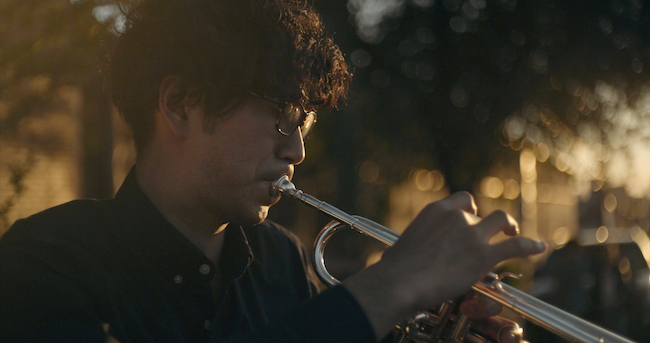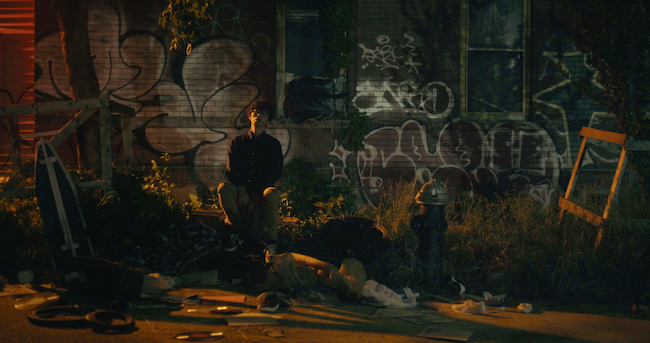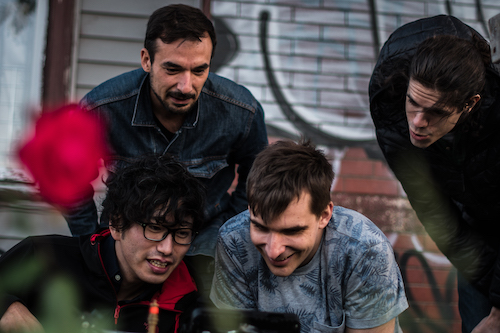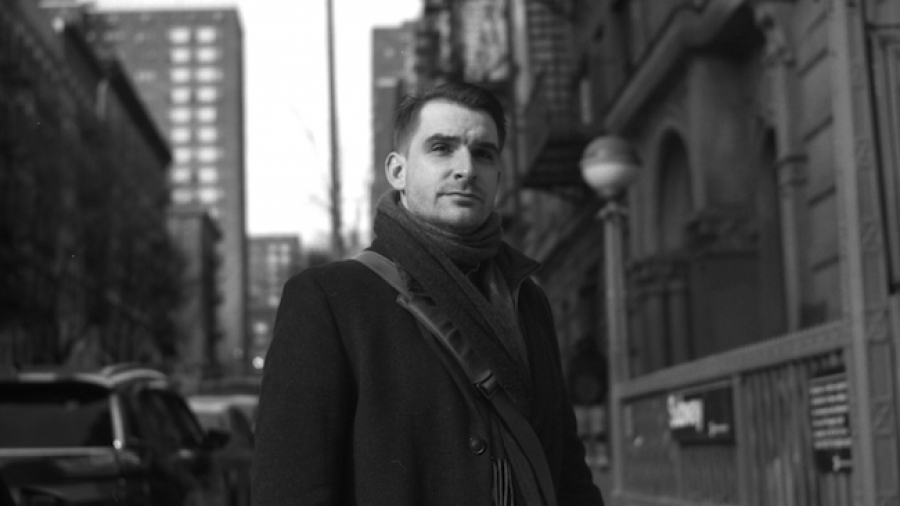Film Fest Magazine writer Precious Ringor sat down with director Kevin Haefelin to talk about his journey as a filmmaker and his latest film Trumpet, which recently won two awards at Japan Connects Hollywood for Best Short and Best Director.
What sparked your interest in filmmaking?
My interest in cinema started when I was young. I made short films with my friends when I was around 8-10 years old. I didn’t start by being a cinephile or by watching a ton of movies. What got me interested was the magic of cinema and all it had to offer, how it had the power to make an audience believe in stories. I enjoyed building sets, props, and trying out optical tricks with the camera. Then at some point, I wanted to take it seriously so I went to film school in Geneva at 19. I found my voice as a director there by making a few short films. One of them was pretty successful, it helped me find a producer right after graduating. He helped me gain my first experience as a professional director outside of school. After about five years, I felt ready to go back to school to study a new perspective on film: screenwriting. I knew I always wanted to study in the U.S. and Columbia University was the direction I wanted to take. Now, here I am working on my thesis for my master’s.
Do you find that going to school in two different countries contributed to your filmmaking style?
Yes, absolutely! The art school I attended in Switzerland was less structured which allowed us to experiment with genres from documentaries to fiction or basically anything that’s not a narrative. The good thing about this is if you’re in the beginning of your career, you can try out different things without worrying about the end result. It’s a great starting point because it basically frees you. The downside for me, however, was that I decided to focus on the fiction genre rather than artistic installations [three-dimensional works designed to transform the perception of space]. I realized I was not into fiction work; I was more into narratives. That’s why I decided to go to school in the U.S., because I found myself lacking in terms of knowing what goes into that structure.
Is there a genre you love to film?
I love dramatic comedy, it’s the means of expression that really resonates with me and my filmmaking. Stories about people who feel like the odds are against them, who feel like they’re alone. What makes it comedic though is that they don’t ask for any trouble; somehow, they just find it and they have to try and survive it. Also, all my shorts have a positive ending. I’d say despite the deadpan comedy, I want my characters to change and find optimism in their world.
I heard you won an award for your most recent short in Japan Connects Hollywood, Congratulations!
Yes, thank you. We won two awards, Best Short and Best Director. We finished Trumpet in February and that was our last production out. Now, we’re working on a new one we’re hoping to film in September.

Still from the film Trumpet.
What was the inspiration behind Trumpet?
Initially I wanted to write a part for a jazz trumpet player. Since Japan has a very big jazz scene and their jazz musicians are renowned worldwide, I knew I had to base my character from the country. I thought, “What if I created a character who has never been to the U.S. but goes on a pilgrimage to New York because he is a big fan of Miles Davis? Who, because of his inability to speak English, gets lost in the wrong part of town and has to make a journey in the night.” I wanted to break the boundaries of culture through a shared understanding of adversity and music. Additionally, my wife who is also my producer comes from Japanese Heritage. Even though she lived and grew up in Switzerland, she had Japanese roots at home.
And your lead was a real musician from Japan. How did that come to be?
As I mentioned, I wanted a Japanese jazz player and I found Mao Sone [lead actor] through the internet by looking up ‘famous Japanese jazz trumpet players.’ I had to gamble everything on him considering I didn’t know him personally and he had no prior acting experience. It actually worked out because compared to other actors who feel like they have a ton of pressure, he was just being himself and I was able to capture that. I have to say throughout the shooting of the film, I saw the birth of an actor. Towards the end, he was inventing and giving me something I couldn’t write about the character. Like jazz, it was all about improvisation. He was improvising his acting just as he would perform his trumpet and that’s what makes this film special and unique.
At the end of the film, there’s a wonderful solo of him playing the trumpet and everything was fully improvised in one take. We wanted to capture the essence of him transitioning from being lost to belonging in NY. The shot wasn’t easy, it was tricky but it was beautiful. Everyone had to improvise – the musician, the cameraman, etc. I couldn’t tell everyone what to do or how to do it so everyone was pretty much feeling it.
A lot of critics praised the artistic elements of your film. Did you take any inspiration from past filmmakers or films you’ve seen?
I’ve always been interested in production design, colors, shots, and composition but where I got that from, I don’t know. I won’t say that I got inspired by certain filmmakers and tried to copy them because that wasn’t my starting point. When I compose a frame or a shot, it’s like a note of music. If it doesn’t sound good or if it’s off-key, then it doesn’t work. Similarly, everything in my shots and soundtrack needs to complement each other to work.

Still from the film Trumpet.
Anything you can tell us about your next project?
Trumpet was actually the first time I made a movie that I felt was really me. I felt free while writing and directing it. The one that’s in pre-production right now is called The Fuse. This one is kind of an extension of Trumpet in terms of filming and my writing style. What’s changed with the new film is that it goes further than my previous shorts, it’s more grounded in the exploration of human nature/condition. It’s much darker but it also goes much deeper. Hopefully, this will be my last short before I attempt a feature film. I’ve already done ten and this will be my eleventh short, I feel ready to move on.
What advice can you share to someone starting out in the industry, maybe an aspiring filmmaker coming from a different country?
What’s amazing nowadays is we have access to advanced technology. Even with a smartphone, you can compose and play around with different settings to make films. You don’t necessarily need money or fancy equipment. What you need to do is make mistakes. You have to start somewhere and learn about what you like and don’t like. Find your voice by making as many short films as you can. Also, find people who are interested in what you’re doing and try stuff with your phone, it can be fun!
Film school is another path which works for some but what really matters in film school is not what you learn by sitting down in class, it’s what you find from doing the work and collaborating with classmates. The thing I learned from doing my films is that you don’t need to go to film school to make a film. It’s all about the content.

Behind the scenes of the film Trumpet.

